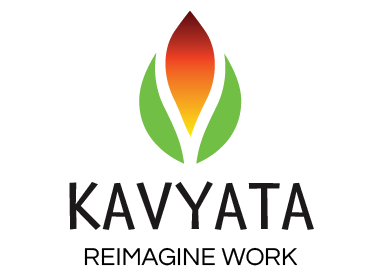
25 Feb Career Change into Freelancing – 5 Winning Mindsets to Help You Succeed
So you’ve had enough with your 9 to 5 job which looks more like a round-the-clock 5 to 9 job and you want to make a career change into freelancing? Good choice, I must say, considering where the world of work is headed for. Most workers are expected to be freelancers by the year 2027 and for good reasons too. Some stats to support this
- 78% of gig workers say they’re happier than those working traditional jobs, while 68% say they’re healthier
- 84% of freelancers are living their preferred lifestyle compared to just 54% of those working in traditional jobs
- 26% of millennials think the gig economy offers more security than traditional work.
Freelance workers will be in demand not only among small and medium businesses increasingly to plug the gap for talent shortages in large organizations too.
As someone who is an independent worker at heart and has been a freelancer for over a decade and a half, I welcome these changes. However, in the transition from working for someone else as a employer, and going on your own as a freelancer, it’s not enough to just do great work. The best freelancers know how to find new clients, communicate effectively, market themselves, and run a business.
My own experiences as a freelancer as well as being a career coach, helping people to make a career change into freelancing, have shown me five winning mindsets and practices which can help you make a successful career change into freelancing.
5 Winning Mindsets for a successful career change into freelancing
1. You’re good at setting goals for yourself : The most successful freelancers are great self-starters. But even if you’re not the most energetic self-starter, you can learn to be a pretty good freelancer, if you can develop the mindset and practice of setting goals for yourself.
No one tells you what you should do or when to have it done, that’s perhaps one reason why you want to change careers into freelancing. But once you’ve become your own boss, you need to decide how you should be spending your time and what you want to go after. In other words, you’ve got to set your own goals. And they need to be at just the right level which can make you feel nervous and excited about wanting to achieve them, don’t they?
Goal-setting for freelancers has to be a mix of long term direction and then working backwards to break it down into short and medium term goals. Too much focus on just short term goals like the next monthly target, can hold you back from sensing the trends and opportunities in the marketplace and therefore factoring that into your vision.
 Drive yourself towards energizing and meaningful goals as a freelancer
Drive yourself towards energizing and meaningful goals as a freelancer
As a freelancer, I’ve found it helpful to anchor in long term goals like say ‘work with 5 new institutional clients in the next 2 years’ and then work backwards to break this down into actions and short term goals to make this happen.
Read – How Can You Change Careers out Of Consulting When You Don’t Know Your Next Step?
The practice of goal setting as a freelancer must be adhered to – otherwise it’s all too easy to miss the woods for the trees. My own experiences have also taught me that it’s good to try for a mix of moderately easy as well as challenging goals, when you’re changing careers into freelancing out of a full-time job. Set yourself far too stiff goals as a freelancer and you have nobody to turn to when the going gets tough. It’s also that much harder to keep up the steam when you’re on your own, so you also need some easy wins to fuel yourself.
2. You enjoy both structure and flexibility in managing your time : How do you manage your time, is a question I’m often asked as a career coach. Especially when you want to change careers into freelancing, you may have to learn to relook at how you manage your time. The demands of a full-time job are such that you have a constant stream of deliverables and that by itself can force you to structure your time.
 Find your own rhythms to manage your time as a freelancer
Find your own rhythms to manage your time as a freelancer
But in a career as a freelancer, you have to win projects, business and clients on your own. I’ve often found that work tends to come in uneven spurts in my life as a freelancer and learning to dance with this unpredictability is part of the fun and challenge! It is therefore helpful to develop comfort with both structured time and downtime, if you want to thrive as a freelancer. A very real danger is that when you’re not ‘delivering’ something (a project, a program) the downtime can just whiz by and then when something needs to be delivered, you’re scrambling for time.
I don’t mean to say that you shouldn’t have downtime; periods of doing nothing are important for rest and rejuvenation. But also think of downtime as time when you can do some of the non-deadline oriented stuff, such as catching up on your reading, meeting people for a coffee chat – these little things which keep you at the top of your freelancing game in terms of expertise, networking etc.
So the key is to learn to enjoy the structure and the flexibility that comes with being a freelancer and to put in place some rhythms which can help you deal with both.
3. You like nurturing relationships, not just doing plain old ‘networking’: Life as a freelancer becomes so much easier if you have a variety of relationships and ones that you have nurtured and grown over time! I’ve found that freelancers can’t do it all – and that would be a surefire way to stop your freelance business from For instance, in my work as a career coach, I need the support of video editors who can help me shoot and create video content around coaching and the programs I offer. It helps if I have such people in my network, and I grow relationships with them, so that we can support each other in advancing our work interests.
For people who want to make a career change into freelancing, this is an area which may need some work, especially if in your earlier roles, you were used to a lot of external support which came to you via the organization’s/employers’ chosen partners/vendors etc.
Not just with partners and vendors, freelancers must also grow their relationship with mentors and industry experts. This can help them tap into larger, more visible opportunities (through industry forums such as chambers of commerce) and also keep them updated with the latest trends.
4. You have a love for learning: As a freelancer, you have to continuously learn and upskill yourself so you can offer the best to your clients. Nothing brings repeat business to a freelancer, than work delivered at the highest quality. To do that, you have to go the extra mile and invest in yourself, so that it reflects in your work.
 Fall in love with learning new skills to stay on top of your freelancing game
Fall in love with learning new skills to stay on top of your freelancing game
When you’re thinking of changing careers into freelancing, evaluate how you’re going to engage in learning and even set aside time and resources for it. As an employee, often, you’re participating in learning and training programs which the company has curated for you. But on your own, you need to decide what learning can offer you the most, in terms of expanding your skills and repertoire. Some of that learning will have to be on a continuous basis, so falling in love with learning is your mantra for a successful career change into freelancing.
Read – What is Executive Coaching and What to Consider When Hiring a coach?
5. You experiment and have a ‘product’ mindset: When you change careers into freelancing, you also have to foster a curious mindset which loves to try out things. You will need to experiment with your offerings, tweaking their positioning, core benefits, communication and price.
Say you’re starting off as a consultant on branding for SMBs – you will need to experiment till you discover the optimum price, positioning and clients for your kind of branding services. Don’t hesitate to do this in the early days of your freelancing career – it’s necessary to find these by trial and error so that you can then serve the right target clients with your products/services.
It may also help to develop a ‘product’ mindset – where you turn your services (especially the ones that you see have repeated demand for them) into a nicely packaged product with a specific timeline, outcome and price. This saves you effort and time and also communicates to your clients, your expertise in providing that service.
Maybe you’re a graphic designer and are consistently creating logos. You could create a productized service around that. Think ‘product’ but not too early in your freelance career. Once you’ve found your feet as a freelancer, it’s the right time to take off to the next stage using productized services.
Freelancing is a great way to build your own life, do work which makes the best use of your strengths and potential and live life on your own terms. It’s exciting to start your freelance journey. If you are working full time now, and believe that you would like to change careers into freelancing, then you may want to read more about our career change coaching work. Our coaching supports you in making the mindset changes to switch successfully into freelancing and designing your freelancing career from there on. We also recommend reading books by Austin Kleon and Seth Godin, to get you to start thinking and acting like a freelancer.
With these winning mindsets and practices, we are sure you can get started on your way to designing a great career and life as a freelancer.
Read Next – 5 Leadership Mindsets

Kavita, an alumna of IIM Ahmedabad, brings 20 years of experience in Experiential Learning, Coaching, Personal Growth & Change. Her forte is Career Transition Coaching and Leadership Development for mid-senior individuals, helping them find success and fulfilment at work . She also teaches Career & Self Development courses at leading management institutes including IIM Kozhikode, IIM Udaipur, IIM Indore and at the IITs.

